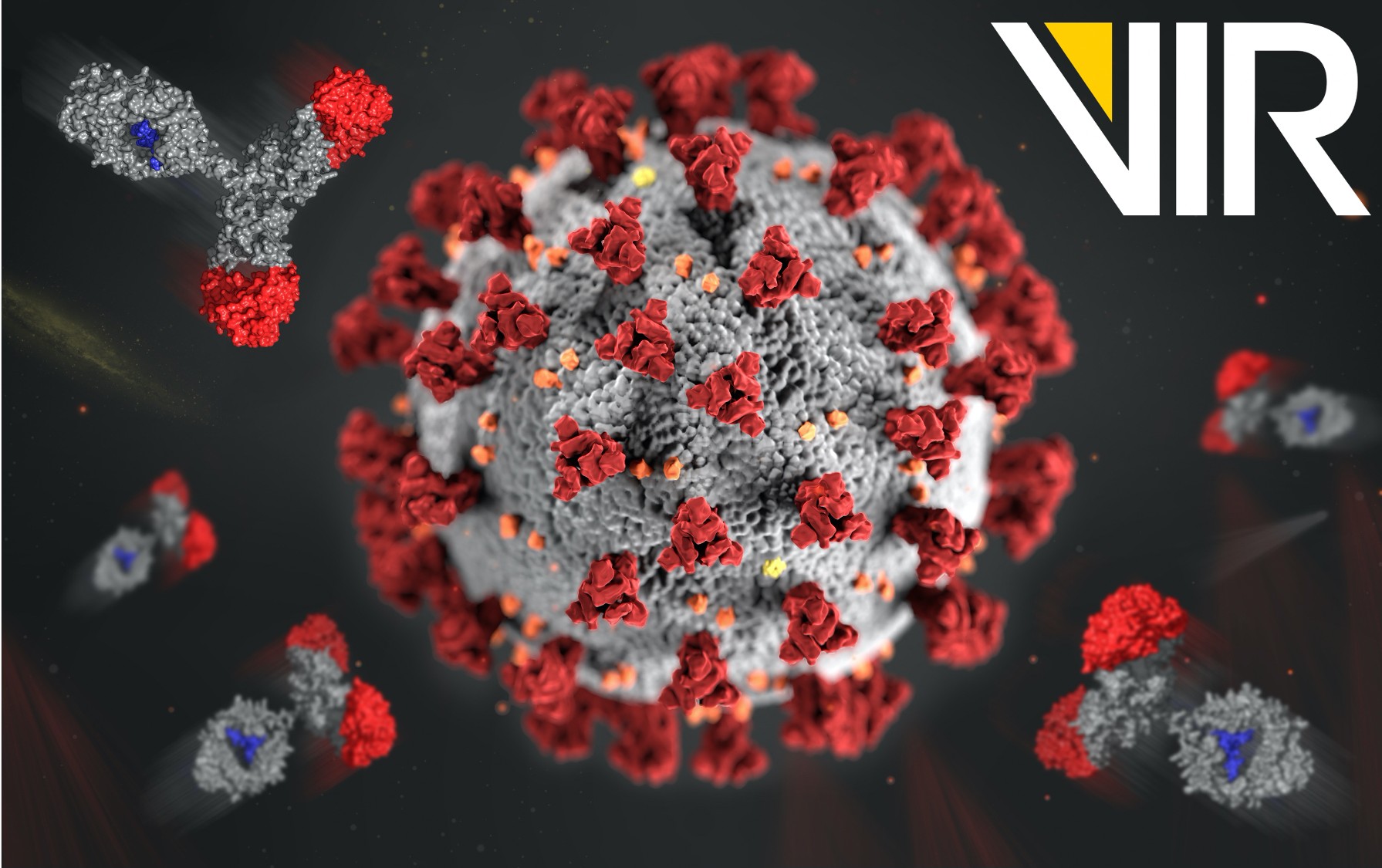Bengaluru, NFAPost: Vir Biotechnology, Inc. and GlaxoSmithKline plc today announced that an Independent Data Monitoring Committee (IDMC) recommended that the Phase 3 COMET-ICE (COVID-19 Monoclonal antibody Efficacy Trial – Intent to Care Early) trial evaluating VIR-7831 (GSK4182136) as monotherapy for the early treatment of COVID-19 in adults at high risk of hospitalization be stopped for enrollment due to evidence of profound efficacy.
The IDMC recommendation was based on an interim analysis of data from 583 patients enrolled in the COMET-ICE trial, which demonstrated an 85% (p=0.002) reduction in hospitalization or death in patients receiving VIR-7831 as monotherapy compared to placebo, the primary endpoint of the trial.
VIR-7831 was well tolerated. As the trial remains ongoing and blinded with patients continuing to be followed for 24 weeks, additional results, including epidemiology and virology data, will be forthcoming once the trial is completed.
Based on these results, Vir and GSK plan to submit an Emergency Use Authorization (EUA) application to the U.S. Food and Drug Administration (FDA) and for authorizations in other countries. Data from this registrational trial will also form the basis for a Biologics License Application (BLA) submission to the FDA.
The companies also announced today the results of a new study submitted and pending online publication in bioRxiv, demonstrating that VIR-7831 maintains activity against current circulating variants of concern, including the UK, South African and Brazilian variants, based on in vitro data from pseudotyped virus assays.
In contrast to other monoclonal antibodies, VIR-7831 binds to a highly conserved epitope of the spike protein, which may make it more difficult for resistance to develop.
In addition to COMET-ICE, the full COMET clinical development program for VIR-7831 includes:
- COMET-PEAK: An ongoing Phase 2 trial with two parts: to compare the safety and viral kinetics of 500 mg intramuscularly (IM) administered VIR-7831 to 500 mg intravenously administered VIR-7831 among low-risk adults with mild to moderate COVID-19 and to evaluate the similarity in pharmacokinetics between VIR-7831 manufactured by different processes.
- COMET-TAIL: A Phase 3 trial expected to begin in the second quarter of 2021 in high-risk adults to assess whether IM-administered VIR-7831 can reduce hospitalization or death due to COVID-19.
- COMET-STAR: A Phase 3 trial expected to begin in the second quarter of 2021 in uninfected adults at high risk to determine whether IM-administered VIR-7831 can prevent symptomatic infection.
George Scangos, Ph.D., chief executive officer of Vir, said: “These exciting data with a single antibody against a conserved epitope bring us one step closer to delivering an effective new solution to patients around the globe. The dual-action design of VIR-7831 to both block viral entry into healthy cells and clear infected cells, as well as its high barrier to resistance, are key distinguishing characteristics. These findings, paired with our pending publication of resistance data, demonstrate the potential of VIR-7831 to prevent the most severe consequences of COVID-19 and highlight its potential ability to protect against the current circulating strains of the virus.”
Dr. Hal Barron, chief scientific officer and president R&D, GSK, said: “We are pleased that this unique monoclonal antibody was able to bring such a profound benefit to patients. We look forward to the possibility of making VIR-7831 available to patients as soon as possible and to further exploring its potential in other settings.”
The Phase 3 portion of the COMET-ICE trial assessed the safety and efficacy of a single intravenous infusion of VIR-7831 (500 mg) or placebo in non-hospitalized participants globally, and this interim analysis included 291 patients in the treatment arm and 292 patients in the placebo arm.
The primary efficacy endpoint is the proportion of patients who have progression of COVID-19 as defined by the need for hospitalization for at least 24 hours or death within 29 days of randomization. Among those studied, 63% were Hispanic or Latinx and 7% were Black or African American.
According to the Centers for Disease Control and Prevention, these populations are approximately three times more likely to be hospitalized¹ and approximately two times more likely to die² of COVID-19.
VIR-7831 is also being evaluated in the outpatient setting in BLAZE-4, a Phase 2 trial sponsored by Eli Lilly and Company, designed to assess the safety and efficacy of Eli Lilly’s bamlanivimab (LY-CoV555) alone and bamlanivimab with other neutralizing antibodies, including VIR-7831, versus placebo in low-risk adults with mild to moderate COVID-19.
Additionally, VIR-7831, along with VIR-7832 will be evaluated in the Phase 1b/2a National Health Service-supported AGILE trial in adults with mild to moderate COVID-19. VIR-7832 is the second monoclonal antibody from the Vir-GSK collaboration to be investigated as a potential COVID-19 treatment.
VIR-7831 and VIR-7832 are investigational compounds, not approved by the U.S. Food and Drug Administration or any other regulatory authority.
COMET-ICE Clinical Trial Design
The multi-center, double-blind, placebo-controlled COMET-ICE trial is investigating VIR-7831 in adults with mild or moderate COVID-19 who are at high risk of progression to severe disease.
The Phase 1 lead-in portion of the trial, which served as the first-in-human assessment, evaluated the safety and tolerability of a single 500 mg intravenous (IV) infusion of VIR-7831 or placebo over a 14-day period in 21 non-hospitalized adults enrolled across the United States.
In October 2020, based on a positive evaluation of safety and tolerability data of VIR-7831 from the lead-in part of the trial by an Independent Data Monitoring Committee, the trial began enrolling patients in North America and additional sites in South America and Europe in the global Phase 3 portion of the trial. This part of the trial is assessing the safety and efficacy of a single IV infusion of VIR-7831 or placebo in approximately 1,300 non-hospitalized participants globally.





